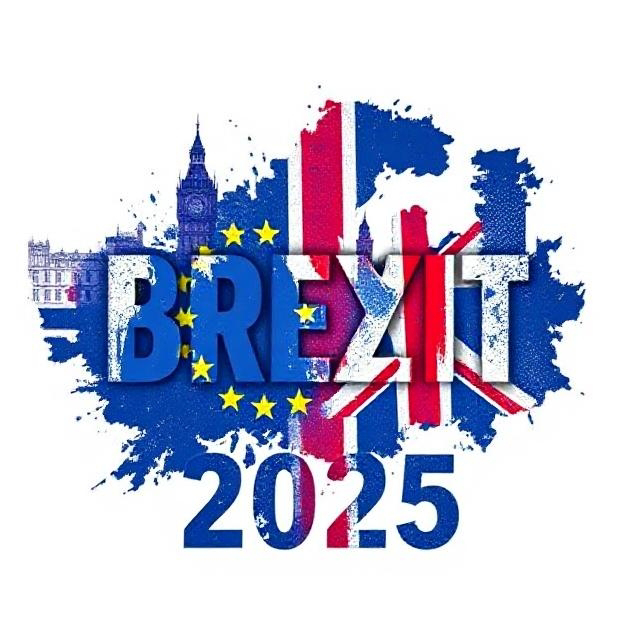2025 EU & UK Post Brexit Secure Immigration: Building a Resilient and Fair System
As the W🌏rld Evolves and global mobility continues to expand, the UK and European Union are navigating the complex landscape of secure and efficient immigration systems post-Brexit. The year 2025 marks a pivotal point where the UK and EU are poised to implement innovative immigration policies designed to foster economic growth, ensure national security, and uphold humanitarian commitments. The post-Brexit era has prompted both entities to rethink their approaches, focusing on creating streamlined, transparent, and resilient immigration processes that adapt to changing global demands.
One of the primary goals for the UK and EU is to establish a secure immigration framework that balances border control with the needs of individuals seeking opportunities. This involves leveraging advanced technology such as biometric verification, digital documentation, and AI-driven risk assessments to prevent illegal crossings while facilitating legitimate travel and work. These measures are essential to maintain public confidence and sovereignty while enabling the free movement of skilled workers, students, and entrepreneurs.
The UK’s new points-based immigration system, introduced after Brexit, exemplifies this approach by prioritizing skills and qualifications over country of origin. By 2025, this system is expected to be fully operational, offering a transparent pathway for migrants who contribute to the economy and society. The EU, on the other hand, is refining its existing framework to better accommodate the influx of highly skilled migrants and to streamline visa procedures for member states, ensuring rapid integration and mutual benefit.
Furthermore, both the UK and EU are emphasizing collaboration and information-sharing to combat illegal immigration and human trafficking. Joint initiatives involving law enforcement agencies, border security organizations, and international partners are vital to creating a cohesive and effective security ecosystem. These efforts are complemented by community engagement programs that promote societal integration and cultural understanding, fostering social cohesion in diverse communities.
In addition to security, economic resilience remains a core focus. By attracting talent through secure pathways, the UK and EU aim to fill critical labor shortages across sectors such as healthcare, technology, and engineering. This strategic approach not only supports economic growth but also enhances innovation and competitiveness on the global stage.
Environmental sustainability and digital transformation are also integral to the future of secure immigration. Eco-friendly infrastructure at border points, combined with digital identity verification, reduces environmental impact and increases operational efficiency. These advancements are crucial in creating a sustainable and adaptable immigration system that can respond to future challenges.
Ultimately, the post-Brexit landscape in 2025 envisions an immigration framework that is secure, fair, and forward-looking. It emphasizes the importance of balancing national interests with the benefits of global mobility, fostering an environment where individuals and nations can thrive together. As policies continue to evolve, the UK and EU are committed to building resilient systems that serve their citizens while welcoming those who contribute positively to society.
**In summary**, the future of EU and UK immigration post-Brexit is centered around security, efficiency, and inclusivity. By integrating innovative technologies and fostering international cooperation, both entities aim to create transparent pathways for migrants. These developments promise to support economic growth, enhance security, and promote social harmony in the years ahead.
1. Post-Brexit, the UK and EU are developing advanced, secure immigration systems focused on technology-driven border controls and transparent processes.
2. The UK’s points-based immigration model prioritizes skilled migrants, aiming to support economic growth and societal integration by 2025.
3. EU reforms aim to streamline visa procedures and enhance cooperation among member states to attract high-skilled workers efficiently.
4. Both regions are emphasizing international collaboration and joint law enforcement efforts to combat illegal immigration and human trafficking.
5. Digital transformation and eco-friendly border infrastructure are central to creating sustainable, resilient immigration frameworks.
6. The future of post-Brexit immigration in Europe and the UK seeks to balance national security with the benefits of global mobility and inclusivity.
================*****************************************===============================*****************************************===============
🙏💐🌅🌏🙏👨👩👧👦💐🌅🌏🙏💐🌅🌏👨👩👧👦
By 2025, the UK and EU are implementing innovative, technology-enhanced immigration systems that prioritize security and efficiency, ensuring smooth legal pathways for migrants. These reforms are designed to attract skilled labor, support economic resilience, and foster social integration through transparent and fair processes. International cooperation and digital infrastructure are key elements driving the development of sustainable, secure, and inclusive immigration policies for the future.







No comments:
Post a Comment